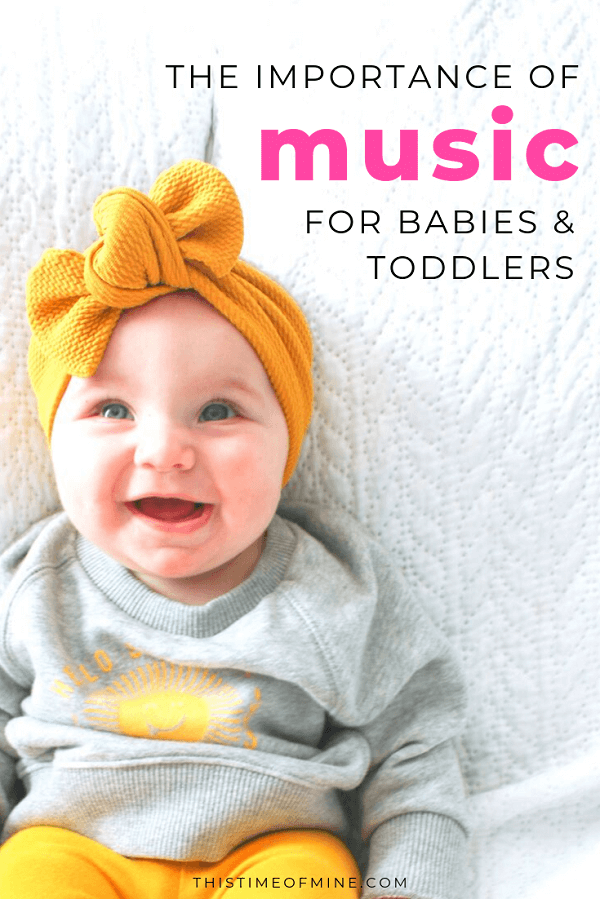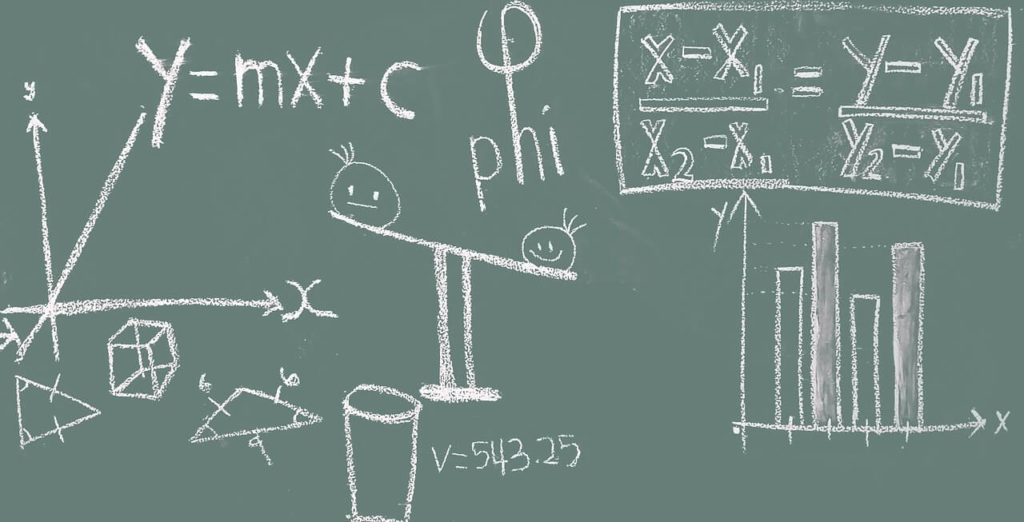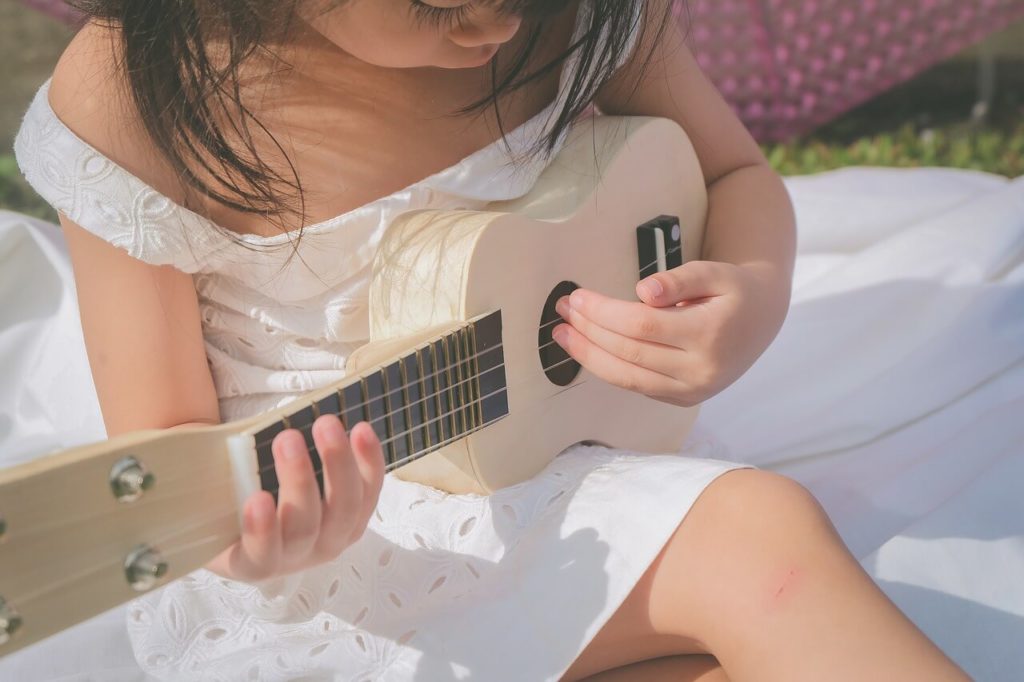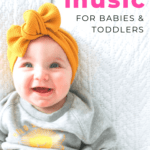Why Music Is Important For Babies And Toddlers
Music is more than just for fun. It’s a powerful way for children to learn. Find out why music is so important in your child’s development and how you can help expose them to more of it!

Music and children go together like milk and cookies.
Have you ever caught your child humming while they eat or wiggling when a good song comes on? That’s because the love of music comes naturally to young children.
But did you know that it actually does more than just make them happy?
Music plays an important role in the overall development of young children. And by the time you’re done reading this article, you’ll understand just how powerful it is in helping them learn.
You’ll also find tips on how to make music a part of your everyday lives.
Ok, let’s get started!
There are 4 areas of development music can enhance:
- Brain development
- Emotional development
- Physical development
- Academic development
Let’s dive into each of these areas a little deeper…

1. BRAIN DEVELOPMENT
Science has taught us so much about how music can affect our development. In fact, it’s even lead to the development of a new branch of research: nueromusicology – or the scientific study of how music affects the brain.
The brain has 3 main executive functions. They are:
- Working memory
- Cognitive flexibility
- Impulse or inhibitory control (self-control).
And all 3 can be strengthened with music! This is great news for a developing child.
Let’s use a simple song like “Old MacDonald Had A Farm” as an example:
memory
Patterns and sequences are an excellent way to improve working memory. That’s why repetitive children’s songs are so beneficial. This one has 2 sections “Old MacDonald had a farm…” followed by “and on that farm, there was a…”, repeated over and over.
flexibility
This song helps children with cognitive flexibility in 3 ways:
- Shifting roles by going back and forth between singing words and making animal noises.
- Responding to cues given by the person who chooses the next animal.
- Improvizing when it’s their turn to pick the next animal.
impulse control
Children practice impulse control by waiting for the right time to make the animal sound. They also learn to wait for their turn to pick the next animal.
And that’s not all!
They also learn to stay on task for an entire song, plan ahead by thinking about the next animal sound, and even learn more about animals in a fun way.
I bet you didn’t realize how clever this little song is. Pretty cool, huh?
2. EMOTIONAL DEVELOPMENT
Music brings us joy. And it’s unique in its capacity as a universal language. You don’t need to understand words to catch the emotion that comes with a song.
That’s why music, even for the youngest of children, is important for emotional development.
Singing to your child, for example, is a powerful way to connect with them. You can bond through eye contact, physical touch, and hearing each other’s voices.
And this is true whether you sing well or not! You don’t have to have a musical background to sing with your child.
If you’d like ideas of songs to sing with your baby or toddler, head to this post where you’ll find a valuable list of parent/child favorites.
RELATED: How To Connect With Your Child Through Music.
How else does music help children develop emotionally?
Music, in all its forms, gives children opportunities to practice creativity and imagination. And experimenting builds their confidence to try new things.
Children also get to practice determination and experience the feeling of accomplishment when mastering something new.
Music is a valuable tool for coping with stress (for you and them!). And along those lines, it plays a big role in sensory development. It helps them process sound input and teaches them how to distinguish different types of sounds.
Also, in group settings, music is an excellent way to connect with peers.
3. PHYSICAL DEVELOPMENT
Music is great for physical development too! Finger songs like “The Itsy Bitsy Spider” are great for fine motor development. And songs that require more movement like “Head, Shoulders, Knees and Toes” help with gross motor development.
Don’t feel like singing? That’s ok too!
Turn up the volume to your favorite music and have a dance party! It’s a fun way to connect, practice a few motor skills and strengthen your child’s stamina. (Even if you’re like me and dance like a wobbly chicken…)

4. ACADEMIC DEVELOPMENT
Let’s not forget about music’s ability to aid in academic development.
How did you learn your ABC’s? Chances are…with a song!
Remember how I mentioned that the sequences and repetitions found in songs help with memory? Well, that definitely comes in handy when learning academic skills like letters, numbers, days of the week, and much more.
You can also turn everyday routines into songs making them easier to remember and more fun to do. Even if all you do is say each step in a semi-rhythmic way, it helps!
Music also helps with language development.
Singing songs and rhymes teaches children sound patterns and sentence structure. It also enriches their vocabulary and exposes them to language in a way that can pave the path to a future love of reading.
Songs and rhymes can also help with other academic skills like counting forward and backward, understanding opposites and developing abstract reasoning.
In general, music helps children understand the world around them in a way that is both fun and effective!
HOW PARENTS CAN HELP
As parents, we love our children and want to provide them with the best opportunities for growth. And music is an excellent way to do that.
So how can we expose them to more of it?
Here are 20 simple ways to make music a part of your everyday life:
- Point out sound differences in everyday noises.
- Have fun with opposites in sound: high/low, loud/soft, fast/slow.
- Sing together.
- Turn everyday routines into a song (cleaning up, making a sandwich, bathtime, brushing teeth, etc.).
- Sing a song at bedtime.
- Sing songs important to your culture or childhood.
- Turn on their favorite music .
- Turn on YOUR favorite music.
- Don’t forget about music in the car!
- Try new types of music.
- Try classical music too!
- Sing or turn on music while cleaning.
- Watch YouTube music videos together.
- Have a family dance party.
- Attend a music class together (don’t forget to check your local library!).
- Go to a live concert.
- Attend a local family event.
- Have real instruments around the house (keyboard, piano, guitar, drum, etc.).
- Have DIY instruments around the house (scroll to the next section for ideas).
- When they’re older, try music lessons!
DIY instruments
You don’t have to go and buy something fancy to have instruments around the house. Try using household items!
Here are a few ideas:
- Pots and pans turned upside-down (with or without cooking utensils for banging)
- Rubber bands on an open box
- Dry beans in a closed jar or empty spice tin
- Empty oatmeal containers with the lids on
- Or check out this article from Artsy Craftsy Mom for some even more creative ideas!

READY TO GIVE MUSIC A TRY?
You don’t need prior musical experience to give your child the benefits of music. The only thing you might need is this bit of advice…
Be prepared for lots of repetition!
Children LOVE repetition, especially with songs. And that’s ok because it helps them learn!
Music is a fun way to connect with your child and make them smile. And you’ll both reap the benefits of making it a regular part of your lives.
want to remember this?
PIN IT TO YOUR FAVORITE BOARD
Share this article:

